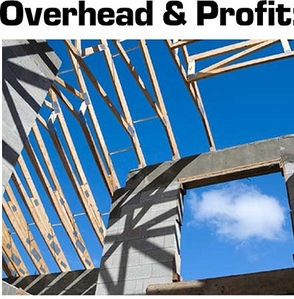
Overhead and Profit – Is it Included in the Replacement Cost Portion of the Insurance Policy?
In Trinidad v. Florida Peninsula Insurance Company, the Florida Third District Court of Appeal, held that a homeowner was not entitled to overhead and profit as damages from a fire in his home.
In this case, a fire damaged the insured’s home. The insured then submitted a claim for payment to his insurance company. The insurance company admitted coverage and made a payment towards repairs. The insured, however, believed that he was not paid in full for his claim as he was not paid overhead and profit. As a result, he filed a lawsuit against his insurance company.
The issue in the litigation focused on overhead and profit. Overhead and profit are elements of the costs paid to a contractor for repairs, and are included in repair contracts and estimates. Overhead includes fixed costs to run the contractor’s business, such as salaries, rent, utilities, and licenses. Profit is the amount the contractor expects to earn for his services.
Although the insured had not hired a general contractor, or submitted a contract by a contractor estimating the repairs, the insured claimed that he was nonetheless entitled to overhead and profit. The insured claimed that he was entitled to overhead and profit even though he did not hire a contractor because they are a “replacement cost” and it is his choice as to whether to make the repairs with a contractor or not.
The insured initially based his argument on his contention that the loss settlement provision of his policy provided for an “actual cash value” payment for his loss, and “actual cash value” includes overhead and profit. Actual cash value is the actual cost of repair, less depreciation. The parties later agreed, however, that the policy is a replacement cost policy. But the insured claimed that his insurance company still was required to pay him for overhead and profit even if he never hired a contractor and does not repair the damage. The insured also relied on Fla. Stat. Sec. 627.7011(3) to support his position.
On the other hand, the insurance company argued that replacement cost is the cost to replace the damaged property, which does not include depreciation or overhead and profit until the insured either incurs those costs or he signs a contract for repairs and submits the contract to the insurance company.
The Trial Court and the Third District Court of Appeal sided with the insurance company and concluded that the insurance company was only required to make payments for overhead and profit under a replacement cost policy when the homeowner actually incurred those costs or became contractually obligated to do so with a contractor. Since the insured did not hire a contractor and did not spend any money on overhead or profit he was not entitled to payment for overhead and profit under the replacement cost insurance policy.
In sum, the Third District Court of Appeal concluded that an insurance policy that promises to pay replacement cost value requires the insured to actually replace the damaged property. The case is currently pending before the Florida Supreme Court, and one of the issues to be decided is whether this ruling conflicts with Fla. Stat. 627.7011(3) which requires replacement cost payments to be made “whether or not the insured replaces or repairs the dwelling or property.” A ruling is expected soon from the Florida Supreme Court.